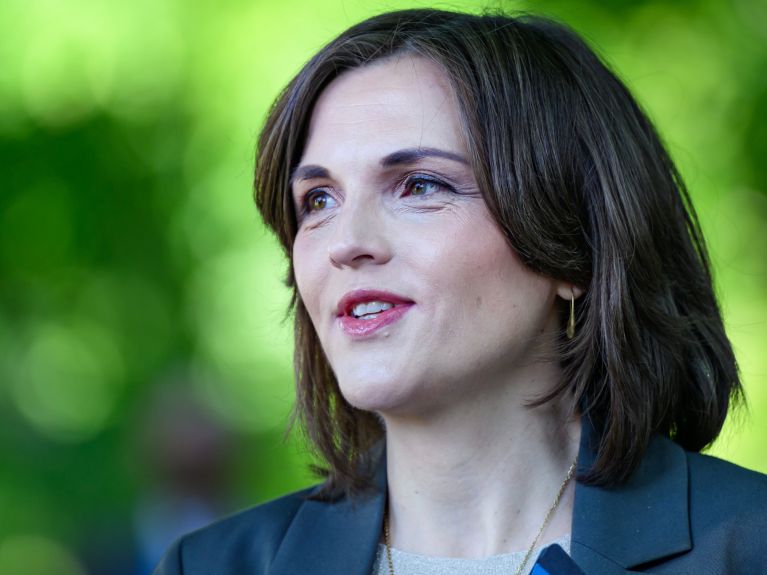“A huge achievement which we should talk about more”
The Federal Government Commissioner for Eastern Germany talks about the families who had to start over following German reunification, and reflects on the good fortune of living in a free country.

Frau Kaiser, on the 35th anniversary of German reunification, where is German unity now? What has been achieved, and what challenges remain?
In the past 35 years, Eastern Germany has developed far more positively than is often claimed to be the case. It’s clear from how the economy and infrastructure have developed, for example, but also in terms of progress on the environment such as cleaner rivers and beautiful national parks. But structural imbalances persist: Eastern Germans have lower levels of income and assets and hold fewer senior positions. Far fewer businesses have their headquarters in the East, too. Some two-thirds of Eastern Germans feel that people from that part of the country are treated like second-class citizens. That isn’t the case for people living in disadvantaged regions of Western Germany, and we need to give particular attention to addressing it. In other words, there’s a good deal left to do. but the glass is half-full.
The upheaval was very hard for many families, mine included.
You were born in what was then East Germany in 1987. What does German unity mean to you personally?
Of course I was too young to realise what reunification meant in 1990, but I noticed that something had changed, particularly in how my parents spoke. I grew up in a free country and had many opportunities that people like my parents didn’t have. I spent time abroad and was able to study in France. The upheavals that followed reunification were very hard for many families, mine included. Most managed to rebuild things for themselves: a huge achievement which we should talk about more. That development shows me what a great good fortune it is to be able to live in a free country. But that can’t be taken for granted.
I am committed to building a strong economy.
As the Federal Government Commissioner for Eastern Germany, what is your role and what is at the top of your agenda?
My role is to be a powerful advocate for the interests of Eastern Germany in all decisions taken by the Federal Government, and to be a strong voice for the region and its people, both around the cabinet table and in the wider world. In that regard, I see myself a someone who builds bridges. I want to initiate conversations between regions in Eastern and Western Germany that face similar structural challenges with a goal of working together to overcome obstacles and learn from one another’s experiences. I am committed to building a strong economy and encouraging more companies to relocate here. Civil society is another issue that is close to my heart: we must draw attention to the efforts of the many people who work to improve their local communities. They are the glue of our society and the basis of our democracy.
Elisabeth Kaiser was born in Gera, Thuringia, in 1987. She has been a Member of the Bundestag since 2017 and was appointed Federal Government Commissioner for Eastern Germany in May 2025.


